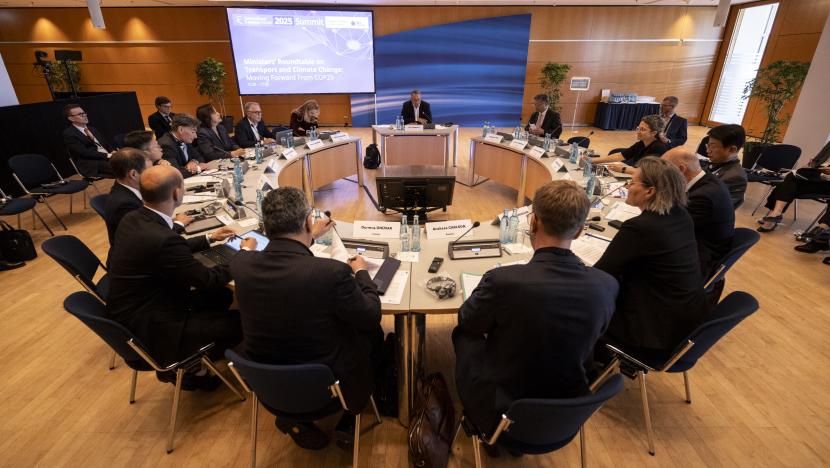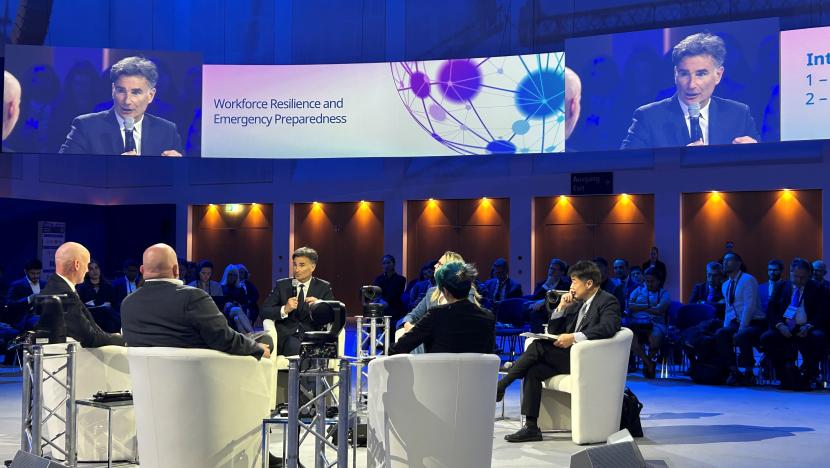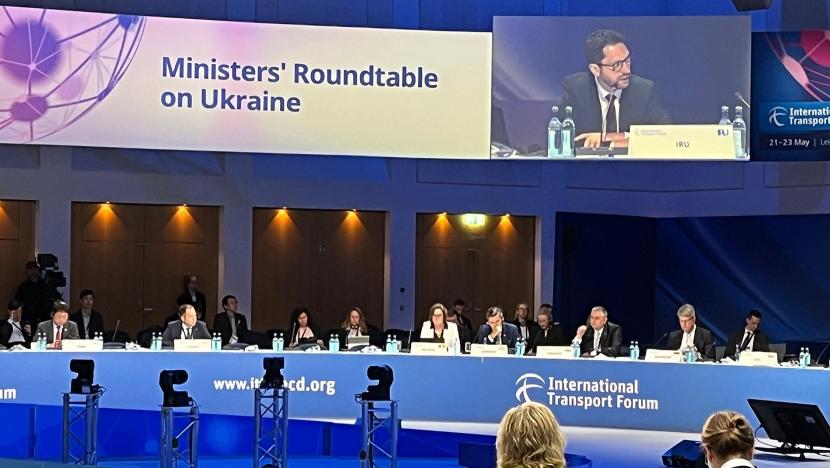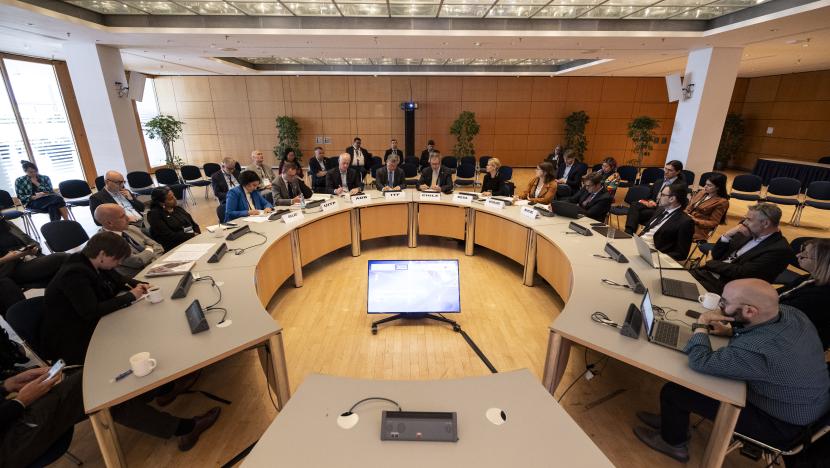IRU was at the heart of last week’s International Transport Forum (ITF) summit in Leipzig, championing pragmatic solutions to make road transport not only greener, but also more resilient and competitive in the face of global challenges.
This year’s annual ITF Summit of transport ministers in Leipzig, Germany, brought together over 1,400 participants from more than 80 countries to discuss the resilience of transport to global shocks.
IRU participated in many high-level sessions, kicking off with a closed-door ministerial roundtable on transport, climate change and actions to move forward from COP29.
IRU Secretary General Umberto de Pretto stressed that decarbonising commercial road transport by 2050 requires immediate, pragmatic action. Proven technologies like eco-trucks and operational improvements can slash 50% of the industry’s CO2 emissions by 2050. A steady transition to new alternative fuels and the vehicles, infrastructure and business models needed to run them will account for the rest.
























